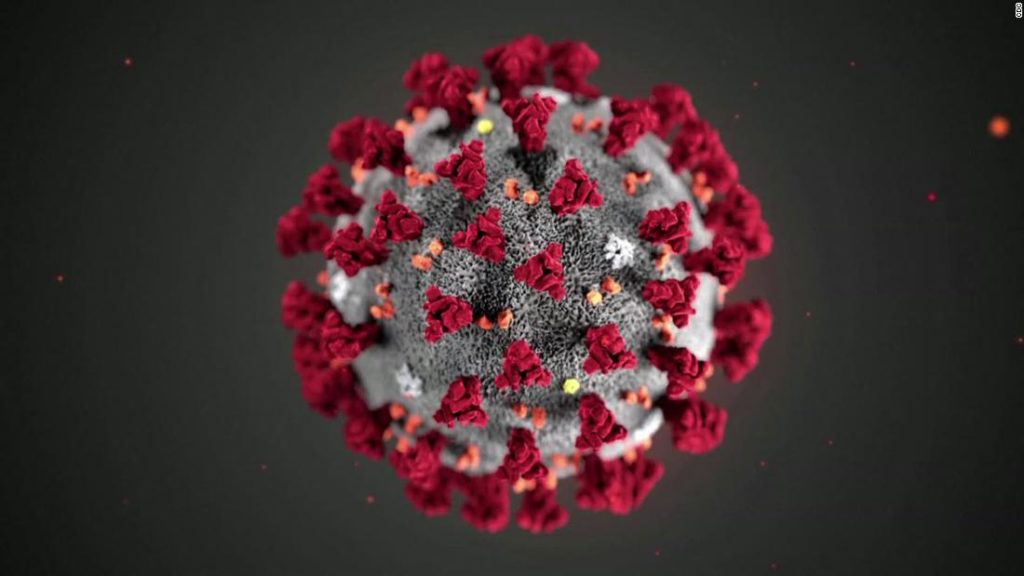The German vaccine watchdog isn’t worried the vaccine poses a threat to older people. It simply argued that the number of older people participating in the clinical trials wasn’t large enough to make conclusions regarding efficacy and safety in the elderly.
Responding to the announcement, AstraZeneca, which developed the vaccine with the University of Oxford, said the latest analyses of clinical trial data “support efficacy in the over 65 years age group.”
The announcement by Germany raised eyebrows because the United Kingdom, whose regulator approved the AstraZeneca vaccine nearly a month ago, has been inoculating people older than 65 with the shot. The chief executive of the UK medicines regulator, Dr. June Raine, said data so far shows “a strong immune response in the over-65s.”
YOU ASKED. WE ANSWERED.
Q: Can dogs detect coronavirus?
A: The Miami Heat is bringing out “coronavirus detection dogs” to screen people as they arrive at the reopened AmericanAirlines Arena — even though the science isn’t yet clear whether the animals can, in fact, detect Covid.
WHAT’S IMPORTANT TODAY
New coronavirus variants keep popping up. Here’s what we know about them
A variant suspected of helping fuel a coronavirus surge in Brazil’s Amazon region shows up in Minnesota. Another that’s been worrying officials in South Africa pops up in two places in South Carolina.
About one in eight — and perhaps as much as a third — of US population might currently have some protection against Covid-19
About 6% of the US population has been inoculated and another 8% have been officially reported as having had the disease, meaning they likely have some protection against Covid-19. However, the CDC estimates that just a fraction of total Covid-19 cases in the US have actually been reported. The latest estimates show that total cases may have topped 83 million through December.
Violence and slurs from some of Israel’s ultra-Orthodox Jews in battle over coronavirus lockdowns
Gathering frequently in large numbers is a central part of the communities’ cultural life. The consequences are deadly: the rate of Covid-related deaths in people over 65 among the ultra-Orthodox was estimated to be about 3.6% higher than the Israeli norm, according to the Ministry of Health.
ON OUR RADAR
- A trio of Democratic lawmakers is demanding a racial breakdown of Covid-19 vaccinations to ensure vulnerable communities are not left behind.
- Health workers, stuck in the snow in Oregon, administered vaccines to stranded drivers.
- English National Opera singers are helping “long Covid” patients breathe.
- A team of World Health Organization investigators examining the origins of the coronavirus pandemic began meeting with Chinese scientists today.
- Thailand has arrested 89 foreign tourists for violating Covid-19 rules.
- Maskless crowds pack Australian Open tennis exhibition in Covid-free Adelaide.
TOP TIP
TODAY’S PODCAST
“We know certain things about the coronavirus, like we know how it enters the body, how it can attack the lungs … this idea that back then there was this invisible thing just sweeping through cities and killing all these people … is terrifying to think about.” — Wendy Zukerman, science journalist
You may also like
-
UK coronavirus variant has been reported in 86 countries, WHO says
-
NASA technology can help save whale sharks says Australian marine biologist and ECOCEAN founder, Brad Norman
-
California Twentynine Palms: Explosives are missing from the nation’s largest Marine Corps base and an investigation is underway
-
Trump unhappy with his impeachment attorney’s performance, sources say
-
Lunar New Year 2021: Ushering in the Year of the Ox

